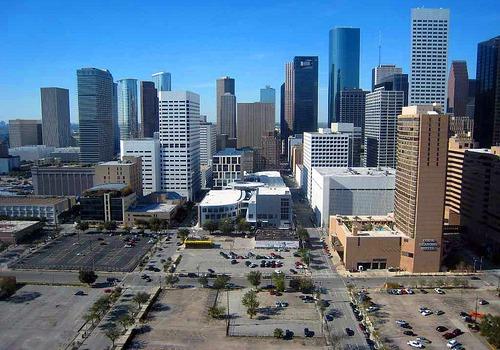Renewable Energy Magazine has a fantastic two-part interview with Michael Liebreich, the founder of New Energy Finance. (Part one; part two.) I guess I’ve just gotten accustomed to reading stupid, ideological crap about clean energy, so when I run across an informed, balanced perspective, I get unreasonably excited.
Anyway, read the whole thing, but there’s one particular part I wanted to draw attention to, Liebreich’s answer to a question on natural gas. Pardon the long excerpt:
… the president in his State of the Union in January said a very interesting thing. He said the US can have 100 years of access to gas because of the new shale gas fracking technologies. And I think that’s a statement that requires a lot of careful interpretation.
I think there’s a real risk, a real short-term risk, to clean energy and renewables and energy efficiency in the US in the collective hypnosis or hysteria about the allure of natural gas.
Of course, it is incredibly exciting what’s happening in gas. It’s fantastic news and it is a wonderful thing that there’s more and cheaper gas than we thought. But here’s the problem: If you delve into the numbers, what you find is that 100 years he’s talking about is the estimate for how much gas there is — not the proven reserves. It’s how much gas is believed to be in the ground, in total, divided by the current rate of gas usage.
There’s a few problems with that. Number one, you can’t get the full 100 year’s worth out of the ground. Number two, you certainly can’t get it out at $8 per MMBTU or less, which is sort of the rule of thumb I’m using for cheap gas.
Right now the cost in the US is very low, at $2 per MMBTU, but what you have to realize is that the people that are doing it for $2 today are not doing it because they are making money, they are doing it because otherwise they would lose their leases or they doing it because they are getting gas liquids which are essentially oil substitutes, which are very valuable.
They are not doing it because $2 per MMBTU alone is in any way an advantageous price for them. So the price is going to go up and we at BNEF think it is going to do so reasonably quickly in the next two or three years. Soon we’ll be up $5 or $6 per MMBTU. But in any event, the amount of gas one could reasonably expect to get out of the ground for the $8 per MMBTU I cited before will probably last us only another 40 years or so… and perhaps closer to 50 if we factor in the natural gas from Canada as well.
By the way, wind is competitive at $6 today. Right now. With today’s technology, wind generation is competitive with natural gas generation if natural gas is $6 per MMBTU. Which means, if we’re right, and natural gas prices come back up in the next few years, wind will be competitive. But here’s the problem even with an assumption of a 40 or 50 year supply in the ground – that timeframe is based on the current use of gas.
If we shut down the coal, if we switch transport to gas use, if we start exporting to Japan, where the price is $15 and $18 and even $20 per MMBTU, well, guess what? That 40 to 50 years suddenly comes down to 25 years. That’s around the asset lifetime of the things that we are investing in to pull it out of the ground.
All that said, I’m very happy for us to exploit gas and for it to become a key plank in the energy mix, and to even grow its share in the energy mix, but let’s not kid ourselves that we’ve got 100 years of gas in the continental US, at $2 per MMBTU, and even if we triple our dependence on gas from 25 to 75 percent. It will not happen.
I think it’s very dangerous to spend the next three, five or seven years believing that we can do that, I think we’ll come up short at the end of that saying, “What were we thinking?” “Why didn’t we read the MIT studies and actually really get to the bottom of it?” “What have we done?” And meanwhile, Japan, Korea, Germany, Britain, and Brazil are going to own the technology of the future if the US doesn’t.
What he said. Some of the claims you see these days about natural gas are just crazy. We’re going to replace coal in the power sector, replace gasoline in the heavy-vehicle sector, and create a new export industry, and it’s all going to be cheap, and it’s going to last forever, so we don’t need to mess with renewables!
Yes, there’s a lot of gas down there. But a) we don’t yet really know how much, we’re just using estimates, b) if we radically expand demand, it will run out a lot faster than we think, and most importantly, c) one last fossil fuel bubble does affect the need to develop renewable energy. A natural gas boom might slightly delay or obscure the massive structural challenges posed by climate change and resource shortages, but it does remove or diminish them. Let’s not be stupid.


